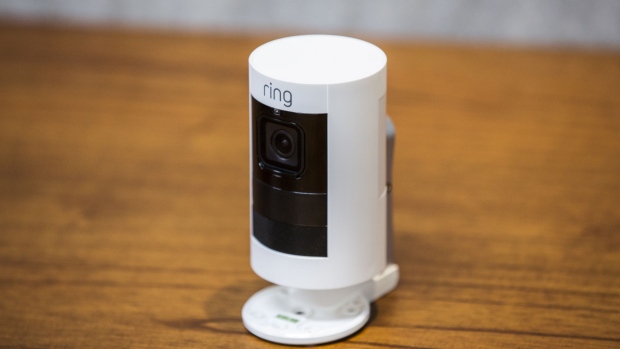Nov 19, 2019
Amazon’s Ring is ‘not doing enough’ to protect privacy, U.S. senator says
, Bloomberg News

U.S. Senator Ed Markey slammed Amazon.com Inc.’s Ring for what he called lax safeguards in sharing customers’ video footage with law enforcement, accusing the video doorbell maker of not doing enough to protect users’ civil liberties.
Markey, a Massachusetts Democrat, had asked Amazon for information about Ring’s privacy policies in September, after the Washington Post reported that the company had hundreds of partnerships with local police offices. Under those agreements, authorities can ask smart doorbell owners to share footage captured by their devices through Neighbors, a Ring smartphone app. The senator disclosed Amazon’s response to his letter and follow-up questions on Tuesday.
“Amazon’s Ring is marketed to help keep families safe, but privacy rights are in real danger as a result of company policies,” Markey said in a statement. “Amazon is not doing enough to ensure that its products and practices do not run afoul of our civil liberties.”
The findings were relayed to Markey in two letters from Brian Huseman, Amazon’s vice president of public policy. He said Ring allows police departments to indefinitely retain the footage users share, and doesn’t forbid law enforcement from sharing the data with third parties. Local police can ask for videos taken in the past 45 days, and over a maximum time frame of 12 hours, and requests must specify video from Ring cameras in a range of 0.025 to 0.5 square mile.
“Ring users place their trust in us to help protect their homes and communities, and we take that responsibility very seriously,” a Ring representative said in an emailed statement. “Ring does not own or otherwise control users’ videos, and we intentionally designed the Neighbors Portal to ensure that users get to decide whether or not to voluntarily provide their videos to the police.”
The company also pointed to an October blog post from Ring founder Jamie Siminoff explaining the limits on law enforcement use of the Neighbors app.
Markey also said that Ring wasn’t doing enough “to ensure that users don’t collect footage of children.” A federal law that Markey helped pass prevents the collection of data on those under age 13 without parental consent. Ring, which says it doesn’t knowingly collect such data, told Markey that customers, rather than the company, control the footage and that it “has no way to know or verify that a child has come within range of a device.”
Markey’s interest is the latest privacy headache for Ring, which Amazon acquired last year for US$839 million. The Information and the Intercept in the last year reported that employees used clips customers had shared through Neighbors to train computer vision algorithms, and, at times, shared unencrypted customer videos with each other. The company says such videos are encrypted today, but hasn’t specified when that practice began.





